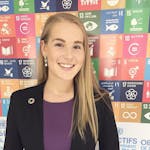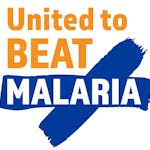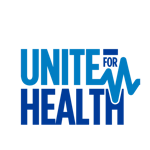The Americas have made significant progress in reaching the milestone of eliminating malaria throughout the region and simultaneously strengthening health systems. However, the COVID-19 pandemic threatens to undo this progress unless collective action is taken.
Last week, we marked Malaria Day in the Americas, a day that promotes awareness of the disease and recognizes the notable efforts to tackle malaria in the region. The Americas have made significant progress in reaching the milestone of eliminating malaria in the entire region, a huge step toward improving the health and well-being of all people who call the Americas home.
Between 2000 and 2015, malaria cases in the region decreased by 62%. Some countries have seen an increase in cases since 2015, yet many are still on track to eliminate malaria. Paraguay and Argentina have recently been certified as malaria-free. Additionally, El Salvador is on track to eliminate malaria in the coming months. Ecuador and Haiti are working toward elimination by expanding health coverage and targeting hard-to-reach communities that too often have the highest number of malaria cases.
This notable progress toward malaria elimination has been made possible by global partnership through initiatives such as Municipalities for Zero Malaria, developed by the Pan American Health Organization (PAHO). The initiative uses innovative methods of the three pillars of malaria elimination — prevention, diagnosis, and case management — to support frontline health workers and communities that continue to be malaria hot spots. Municipalities from across the region are working together for the health of all people in the Americas and are committed to ending malaria for good.
The three pillars of malaria elimination also have proved to be strategic ways for countries to scale up and strengthen their overall primary health systems so that they can effectively address other health needs of people in the region.
In the Americas, the Nothing But Nets campaign works with UN partners to maintain commitment to malaria elimination and provide health workers with the tools they need to prevent, diagnose, treat, and track malaria. These efforts are focused on ensuring the most vulnerable people — children under 5, pregnant women, Indigenous communities, and refugee or displaced families who have fled their homes due to conflict, violence, or disasters — are prioritized in malaria elimination efforts.
Reaching these vulnerable populations would not be possible without the commitment and dedication of frontline health workers. Here are some of their stories:
Reaching malaria elimination in El Salvador
This Central American country has had zero locally-transmitted malaria cases since 2017. This success is the result of the strict adherence to a strategy of diagnose, treat, investigate, and respond (DTI-R) that ensures that malaria cases are treated and reported, with more than 5,000 people working in the field ranging from technicians from the World Health Organization (WHO) Malaria and Environmental Health Programme to community health volunteers.
Juana Araceli Menjivar, a community volunteer in Sonsonate, El Salvador, does her part by asking community members if they have a fever and collecting blood samples to test for malaria.

El Salvador implements strong systems to track increased cases of malaria and other diseases, through both an online national disease surveillance system and strong border surveillance. The country also built systems that enable diagnosis and treatment to be done locally so that patients can be treated in their own communities rather than having to visit a specific health facility.
These efforts would not be possible without El Salvador’s strong political engagement, sustained domestic financing, data-driven multisectoral strategic plan, and ongoing education about malaria for all — from doctors to people living in affected communities.
Empowering Indigenous communities in Ecuador
Ecuador has been historically affected by malaria because of limited access to health care in hard-to-reach areas, recurring climate events like hurricanes that create ideal wet environments for mosquitoes, and high population mobility across its borders with Colombia and Peru that allow for the reintroduction of malaria parasites. The disease has put Indigenous communities that already live in poverty and lack proper tools to prevent and treat malaria at an even higher risk.

But over the past 15 years, Ecuador has strengthened its health coverage in high-risk areas by involving and empowering all levels of society. This includes working with community health workers, volunteers, government officials, schools, and churches. The country now has zero deaths due to malaria, and cases have declined from 800,000 in 2000 to less than 2,000 in 2019. Eliminating malaria would lift a large burden for one of the groups most vulnerable to malaria: Indigenous people living in the Amazon rainforest. Discover how frontline health workers like Olga Pitiur are working to #UniteForHealth and strengthen access to health systems for vulnerable populations in Ecuador.
Innovative control interventions in Haiti
In 2018, malaria cases in Haiti fell below 10,000 for the first time in decades. The Haitian National Malaria Control Program and Malaria Zero have successfully targeted malaria in Haiti by using Indoor Residual Spraying (IRS), a new strategy for the country. This helps exterminate the population of malaria-transmitting mosquitoes that exist in remote regions, such as Grand’Anse.
Community health workers are the cornerstone of the IRS pilot program in the Grand’Anse community.
“I feel that with my work in the campaign I am watching over others. All our neighbors act the same, we are watching over each other, collaborating between us to keep our children healthy,” said one of the community health workers, Genese Victor, who works as an indoor residual sprayer and is a mother of two.
“When we as a community work together, it has a good impact on everyone and that is what we are doing. We are working hard to end malaria,” she added.
Multiyear mosquito control efforts such as the one being implemented in Haiti are especially critical in the wake of unanticipated events, such as the COVID-19 pandemic. The Americas have been hit the hardest by COVID-19, making up nearly half of the world’s new cases.
As the pandemic continues, malaria services cannot be overlooked. Health workers need to continue to receive the proper education and tools to help distribute resources and treatments, even during lockdowns or while staying socially distant.
Although the risk of getting malaria has decreased notably in the Americas, resurgence is still possible if there is decreased surveillance or resources to fund malaria programs. This would further burden health systems that are suffering from impacts of the COVID-19 pandemic, affecting the most vulnerable people and undoing years of hard-won progress.
Meet some of the people behind the progress being made on reducing malaria in the Americas by visiting Nothing But Nets’ Voices from the Frontlines series.
Featured Photo: Nothing But Nets



 View All Blog Posts
View All Blog Posts



